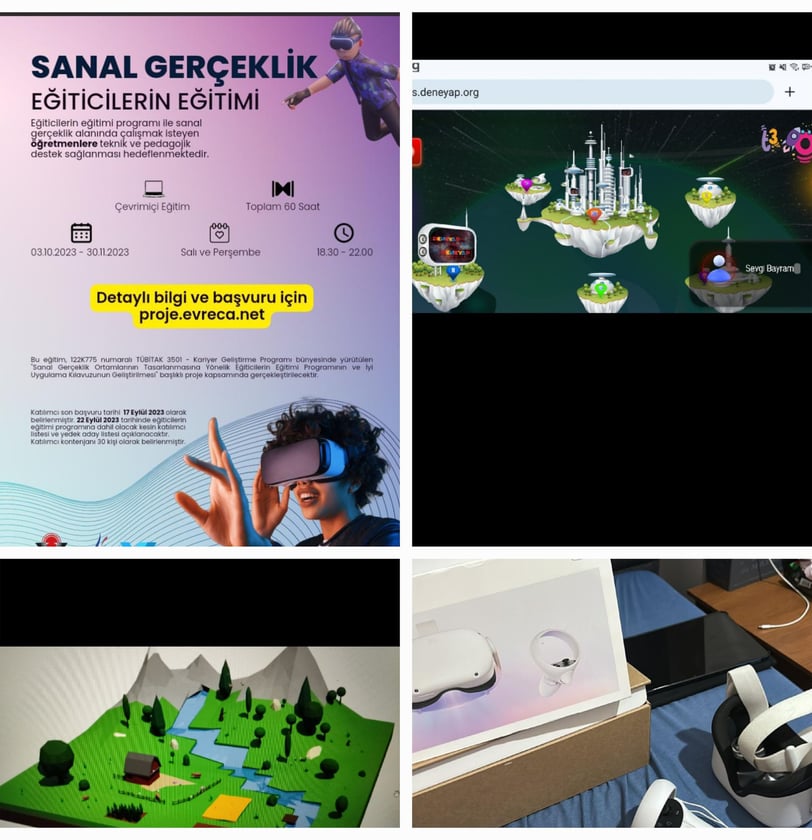Advancements in Virtual Reality Training for Environmental and Energy Technologies
10/31/20232 min read


Introduction
In the field of education, advancements in technology have opened up new opportunities for immersive and interactive learning experiences. One such advancement is the use of virtual reality (VR) training, which allows teachers to create realistic and engaging environments for their students. Sevgi Bayram, a project coordinator, recently participated in the 2023 Virtual Reality Training for Teachers and developed training material for environmental and energy technologies.
Collaboration with Manisa University
Sevgi Bayram collaborated with the Computer Technologies Department at Manisa University to develop the training material. This collaboration ensured that the material was based on the latest research and met the needs of both teachers and students. The use of Unity and Oculus MetaQuest 2 hardware further enhanced the immersive experience for the learners.
Development of Training Material
The training material focuses on environmental and energy technologies, specifically on the topic of environmental waste management. Through interactive virtual environments, students will be able to explore different waste management practices and understand the impact of their choices on the environment.
The material is still under development and will later be made compatible with VR/AR glasses, allowing students to experience the virtual environments using these devices. This compatibility will further enhance the realism and engagement of the training material.
Benefits of VR Training for Teachers
The use of VR training in education offers several benefits for teachers and students alike. Firstly, it provides a more immersive and interactive learning experience, which can greatly enhance student engagement and understanding. By allowing students to explore virtual environments, teachers can create realistic scenarios that help students apply their knowledge in practical situations.
Secondly, VR training allows for personalized and self-paced learning. Students can navigate through the virtual environments at their own pace, allowing them to focus on areas where they need more practice or spend more time understanding complex concepts. This flexibility in learning can greatly benefit students with different learning styles and abilities.
Lastly, VR training provides a safe and controlled environment for students to learn and experiment. In the case of environmental waste management, students can explore different waste management practices without any risk to themselves or the environment. This hands-on experience can help students develop critical thinking skills and make informed decisions in real-life situations.
Green Transformation is co-financed by the Erasmus+ program of the European Union.


The content of the website is the sole responsibility of Green Transformation Partnership.
